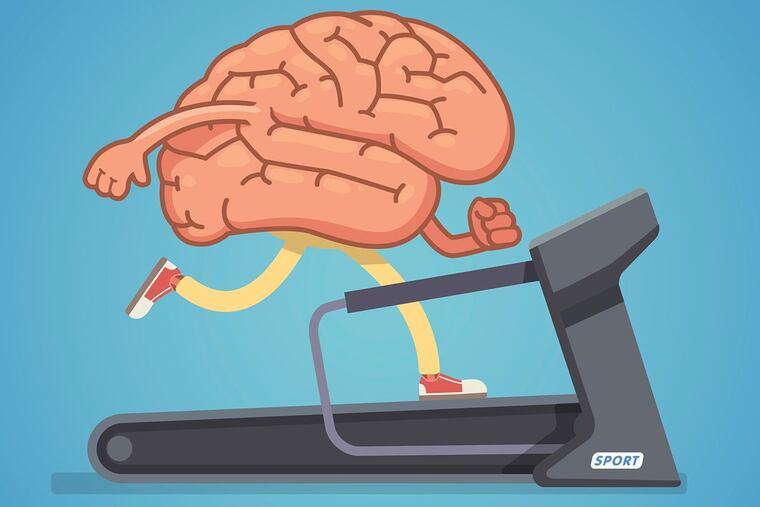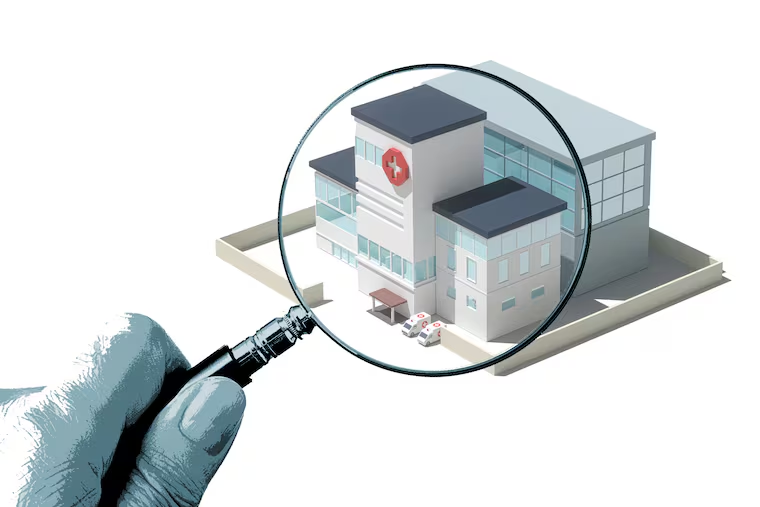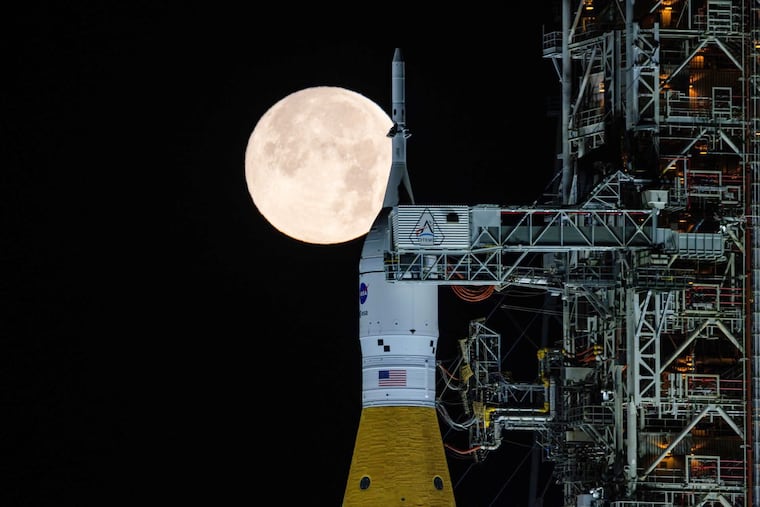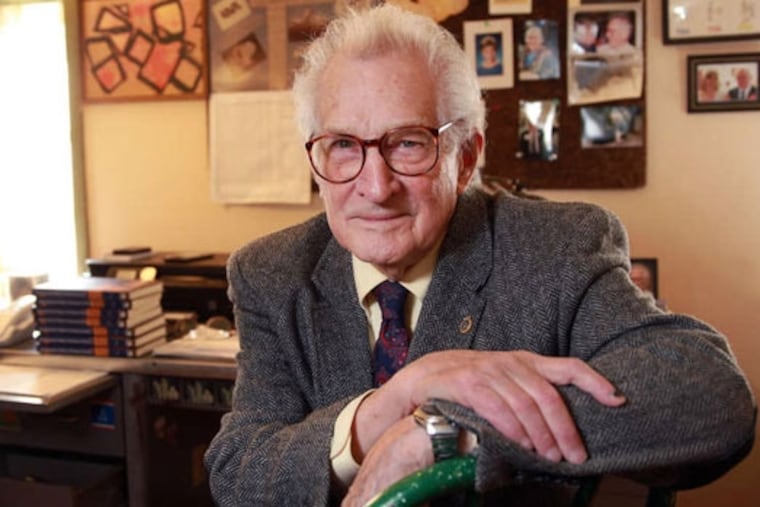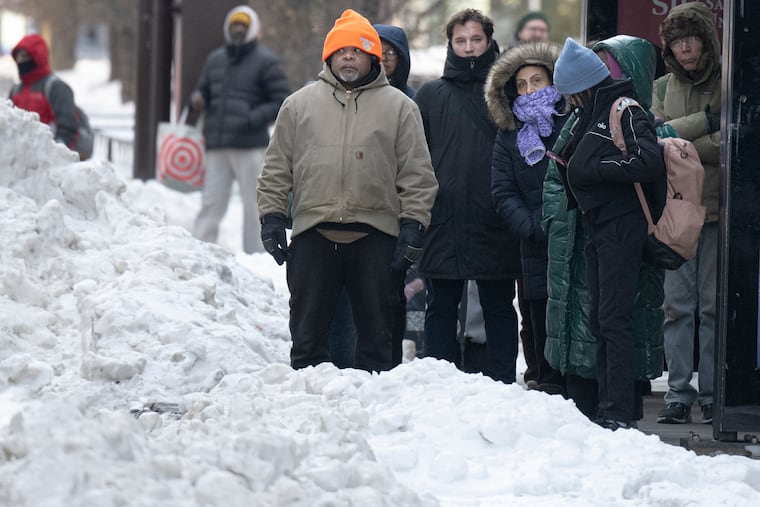Skip to contentJoanna Fong-Isariyawongse, The Conversation
Barry J. Jacobs and Julia L. Mayer, For The Inquirer
Joanna Fong-Isariyawongse, The Conversation
Joanna Fong-Isariyawongse, The Conversation
Barry J. Jacobs and Julia L. Mayer, For The Inquirer
John Lin and Jalpa Doshi, For The Inquirer
BriarRose Edwins and Hayley Goldner, For The Inquirer
Layla Bouzoubaa, The Conversation
Marcia Dunn, Associated Press
Adela Suliman and Kasha Patel, Washington Post
Marcia Dunn, Associated Press
Adela Suliman and Kasha Patel, Washington Post
Noah Robertson, Tara Copp, and Ellen Nakashima, Washington Post
David Ovalle and Cate Cadell, Washington Post
Geoff Mulvihill, Associated Press
Noah Robertson, Tara Copp, and Ellen Nakashima, Washington Post
David Ovalle and Cate Cadell, Washington Post
Geoff Mulvihill, Associated Press
{"ENV":"U29jBXcxY0N+c3dcWjJaQmhjdE90ImAFa3YMCg==","CONTENT_BASE_PROD":"VVpGBlghYE1SY2BAWz50A3xjVkB2MmAGf3NoBnQyY1h8c2AHdyJkAXxzaEB2MnQFf3N7XnQyc1xrY1IHdBxkBn9weAdgDGAHf3BnWnRUYAV/cGgGdzJ8T39aeE10MXBCaGNzWnYxb1w=","ARC_ACCESS_TOKEN_PROD":"U39BWnQcd1pQf2NOXVRgA3xgdE90HHBNf3NSTXciYAV8XXRAYwxzX3xgdE9gDHNZf2B8BnYyZEx/XVJOYBx7WXxjWVt0IngFfAVgQHQyd118cHwEYwt8AHxaYE50MnwFfGBrWmAMdEx8cH9bdjJwB39NWV53DHBPa2NWT3YydAV8Y2tbdyJ/X3xjXVt0HGQFaF1oQHQycAV8Y3BNdiJ3XXxgZEB3IWwFa117XndUf19rXWNaYDFgBmtaZEB0MnNZa2NzWnYye19/cHteYzFsAQ==","GRAPHQL_KEY":"aFp7T3YydwRUXWdfXAxgA3xdcE9gDHgGf11oTndUbE18XXgHdBx/WHxNfEBjMntYf3N/WnQibE1oXXBOYzJ0T2hddE90MngFf2BkQHYid11rXXwGYDFwTXxzZAdgVHwFfHB0T3cBCAg=","GATEWAY_URL":"fGN3AVwhXkx+YFlfXTJ7R35dd1x3MmxNf3N0T3QyZAV+c2RAdDJ8TXwFaE53IWxNa3NVXnQiVkJ/Y3NcdDJ7XGtjY1x3MmNZa3N4BGAMXVl8BXtbYDJZWGtQDAo=","GATEWAY_SLS_URL":"UmB4B1gMUgV8XXtNY1RGA39gYEB3MmNdfHN8B3cyZ1l/YHgHdiJ0TWtjcE93HHQGfF1WQHQMcAR/cGAHYzF/WX9zaAdjMWNcfE1dWmAxY11oWntadAt/Xg==","FEEDS_URL":"U2AEQWAIdwZrc2NbXSJaBXxgZ1t0IlZCaE1zXHQhbEJoY2BPdDF4Qnxdd110MmBMaF13X3QieAV+Y3QHYAt/WXxwaE50VGRPa3N0QGMxYEJrc3hOYzJ3XH9je190HHBMaGN8B2MLb1hrYGQCYzJ4Qn9ADAo=","RESIZER_KEY":"a3AAWGMLAFhQYFUCYzJaBHxzeAV0MnRCf3NoBXcxeE98XXwEdBxsQnxNc1p0HGBNfmN8B3cyc1l/TXBOYzFwT3xjdAR3VG9ZaGN4TnQyZ1l/TXwHYwxZWH9jfAZjMXtZa3NzXg==","GOOGLEANALYTICS_ID":"VQRZXFpVc01QYGNZdxxaBXxdZ1p3MXhPfE13X3cibAR/Y2dfdzFkTX5zf150DHgI","TWITTER_API_TOKEN":"UGNjQFoLcwVSXVIDWiJaT3xNUgR0C2RMaGNzX2MMVk1/TWdbdxxwTX9dfAJgDGRPfHN8TnRUY1h/c3NedwxZXGhdc1t0DFYGfFprXWMLZEJ8TXNfdFR7XX9NdAJ0MntZfGNnW2MMY1hrc3wCYwx7WGhad1tgDGBNaFpkA3YyY1loXXgCdCJeQmgFaE1gMWdcfmBrXHQydARrcGAFYzF/X3wFYE90InABf2B4BWMLZE18BXtcYyF7WWhgYEBjIn9ZfmNaBHYyd1hoYGtdYDJ0Qn5gZANjC2BCaGNzXnYhcABoBWdfYwt/XWtaZAdjMmBCaFpkTWAcY11oYGtaYzFvX2hgd150In9efGB8B2Mxf158c11ddjF7Xn9NdE12MW9ea3BgBmBUf19/BWNbdjJdXGhgfE1jIXgAaFAMCg==","GOOGLE_CLIENT_EMAIL":"U39zA1wLQQV8TWdEYwxaQnxddAZ0MXAEf3NjXXQxcAVoY2BAdCJkTX9NcEB0MXxPfnNwT3QyY1h/XWAGYAt4TWhjZAN0DHxCaFprXHRUeEx8XXgFdxxeBmtgZAR0HGBMf2BrXmMMZ1hrWmgDYzFkBn8FeE5jMnxCa2BkTmMyc1loBWQHdFRzWGhdWkB3C2NYf1p/X2MMUkxoXXhAYyFzX3x2DAo=","GOOGLE_PRIVATE_KEY":"aGBrTWAcYwVTXXdZWCJaB35zYE93IngFfnNjXncxfEJoXVVfdBxWBGhNfE90VHAEfGN/XHcMUk1/XXNcdCFkT2tjfAV3IlYEfmN8TnQMdAZ8TWNedyFkB3xaZE90IXxNa2BkT2MMVkJ+YHdcdCFkBHxda190VHNYfF1wA3Qif1h8BX9edCF8TXxwaEBgMnRNaE10BHQxeE1oXXhAYwxSB2hjfAV0InQAfGNzXWMyZE18TXdeYwtzXnxzVk1gVGNefmNdX3Qcb1l/BXQHYyJjX38FZAZ2IW9ZfE14T2MMfE18cGAGYBx7WHxga1pjC2QEfFp8T2MiXVx/cGtcYyFjX35wfAdgVG9YfFpkQGALZ11rYGgCYDJjWX9jcAdgVH9ff3B4B3Yxb158YGBAdjJZWH9wfE1gC2ABfwV8TWMMb15/YHQEYAtzXmhaY112ImNZfHNaTWMiYAFrWmQCYBxeAWgFfAZ0HHRPaF1kB3QMeAV8XXQDdwxkTX5zcEBgDGNZf010B3QMUkxrc2AHdAxRXHxjeE50MXtcfHNnWnQxf1l/XXAHYwxgT2tjY19jMXhMfF1jW3Qxc1loXXRNYzJjWGtjcAZ0IXtZf2BkBHchZE9oWnwCdDJ7WH9zfAJ0VHNcaF1wT2AcYAd8c3RAYwxdWH9ga1pjIlFYa1p0BXchYE1/YHRNYyJ7WX5gZ1xjIntfaGN3X3YieEJ8Wn9fYAtvX2twa19jInNfaGBkBWMMfAd/BWACYwt7XX5wfAZgMXNfaGB3XXQyb15/WmgCYAxzXX5zWV5jIl1efmB0T2Axf158WmhOYDJRX39ae112Im9Yf3BjWmAMb1hoWnQFdiJ0AHxwdAZ0MnNYfAVgQGAMdAF/TVlaYBxZXn9aYARgVHgAaF1dXnYic1x8BWROYyFjWGtgY1tjMWwAaE1/XXQhfE18XXwCdzJ0TXxdc193MmxCfmN0BHQxZAd8c2tedDF8TGtzdAd0InhNfF1gA3QMVk1oXWBNdDFwT39ze11jMnBCf117XHccZEJ/TXROdwx8TXxdf150IWRPa2NgTnQiUVxoYGdbdBx3XGtzdE10MnhPa11zXHQMZE9rYHQHdCFnWH5zXVtjC3tZfGN3XWAcd1hoBXxNdyFwT2tgf1p2MXNffGBrWmMid158WnxOYBxsBGtaZAVjC3tcf113WmMyd198YHdddAtvX2taeARjC39YaE1WBmAcbE1/YGNfYFRnX2hgY1x2Mn9ZaGBoT2ALY1hrcGdcYDJnX2gFZAdgMndda3NaB3Qxb118cHtdYwxvXH5gf1tjIWdcaF1aB2ALc158WnQDdiJ/XXxadAVgHFlYaAV4AmMiWV5/YHxNYwx7X2gFYARgDF1df3B4TWAxeAR8Y39bdAxkB39daE50MlJPf3N7XXRUYEx8XWQFdAtsBn9jYAd0DHhMfmNzXnQMXkx/cGQCdDJwQmhdfAd3MnRCf013XWMMYE1/TWAEdBxdXGtje110Ml1dfF1zXnRUYExoXXdadAt8TX8FdEBjC29Za2NaAnQiY19oBWhNdFR8TX5ga15gMnNefAVrX2AxY1l/BWNfYzFwTXxzc1pjDGQFa3N/W2Mxe1xoY3RNYzFvWH8FaE5jDHNff3BoQGMLc15rcHtdYFR4TXxjd1xjMmBCaAVrWmAMe1hrcGhAYDJzWWhgdE1jC39Yf1p4BmBUb11rWmBOdCJwAWhaf1pjC2dcfnBkBGMhf1h/cGAGYAxzX3xgaANgVH9ef3NWB2MLc1h+cHdbYzJvX2hdWV1jDFIBfGB7XGMLcAF8BWADYyFkAX5geAVgVHgAa2B8A3Yic1loWnhPdyJkQnxjcEB0MWAGfF1jXnQyYE9/YGROdzFwTH9wZE90ImBPfnNwB3ciZE98Y3wGYzF7WX9df1pjMn9cf113X3Qcd1x8YGQGdCJgT35zdAR0MmdZfFp0BXQxbE1oXWAFdyJ/WWgFfAd0MWBCaGBoTWAMXk1oXXACYDF7WGgFa150MnNZa3BkBnQyXgd/YGtaYFRzXWhaZAJjMn9faAVnXHQceEJoBXgDdFRjWGtdWgRjIm9Za114B2AcZ15rYGtdYDFnXn5wYEB2IWRMfnB0B2Mhb1l8BWhNdDJvXXwFeEBjIXwAf3BkQGAcUV18cGtdYBxvWWhge15gDGNfaE1WTmALe1h/BWAGYyJzXGhdVk92Mn9Zf2BgBWMib118WmNbYzF/XHxwY1x2ImQAf3B3WmAcXgB8c3dcYDFjXH9wYE92Mm9cfmBgBGAye1h/cGtbYyJRXX9daAN0MWxCa11wB3RUYE98c39bd1R8Qn9jdE50InxPaE1jWnRUcAR/XXdedBx8BXxNc110DF5Ma3N7X3QyfEJ+YHhOdCFsTWhjVVp0VGxCfHN0B2MMc1h8BWddYDFgTGgFa1xgMlJPf3N3XWMLY1lrcGQDdCF4BGgFa1pjMntdfnBrXXQxbE18TXQGYzF/WH5jWkBjDF1ZfmNjXGBUb19oTXQHYzFjWWtafAN3Ml5Pf1prXmAyZE98YGNbYzJZXn5gYE9gHGNda3B/WmMxY1xrYGtfYzF7XmhaYAVjMWNeaE1kTWBUY1l/WndfYBxjXHxwdE5jIX9YfFpjW2MMY1hoWmgCYwxjXn9wf110IX9dfAVgAmMif1l+YHxPYAt/WXxwd15gDHdea1p0TWMiXV5rcGdfYAt/X2gFY15jIWwBf01WBXYhZ1xrXVZPYDFzXmhjVk12MlJCf018BHcLcEJ+Y2tfdDJgBXxzeAJ0IXgEf11wBHcybAZ+c3tedCF4TGhdYAN0VGRMfnNVXnQLfAR/Y3wCdDJZWXxjd1x3MllZf118BmALb1l8c3hPYzFsQnxjcEB0VHhNa3BgQGMMf11/WmgFYwxdWHxgZAJjMnNYaGB0AnQiYE1/Y2NdYwx3WGhNcAR0MXtea1pkTXYyXVl8c3ROdyFwTX9aaANjMl1YfFp8T2MiXgBrXXgFdBx0AGhaZE9jC3tYf2N3XGAcVk1oY2ADYBxRXWtjXVtjIWNZfAV0BmMMf1h8WnQHdiF7XH5wZ1t2MX9Yf1p0BGAxc1xrcGNaYDFkAGtaZ15gVGQAf2B8B2MicAF8BX9fdjJ3X3xdWgJgHHNZfGNdXGMhf15rWnRNYBx/XGtjWV5gC29cfHB0A2MhfAF8cGNdYyFvXWtwaAN2MlYBaFp7WncifAZ/c3hNdzFgQnxzZ110HGRCaE1gA3cxZEx/c3ADd1RkTWtjc1x0Il5PfF17W3cLcExrY2dadyJ8T2tdc1p0MWRCf3N0T3QheAZ/Y3AGYzJRXGtgZE9jDHhNaE18AmMLfE9/XWdeYwxsT3xwe19gHG9ZaGNwAmAcYE1/XXAFdwtnXmtzc1xgMnhMf2B8B3Qxf15/WmADdDF8AHxaYE10InwBfFpnXHQicE18WmtfYzJ7WXxNZE10DG9efE1ZXmMhb19/XXdbYyJWT2taYAV3IXxCa3BnW3YiXV5rcHwCYyJnWHxwZ19jMm9dfmB0BGALb1hrc3wDYyJZXWgFdAJjIX9ff1prX2MyUVx8XVoDYwt/X3xgYAJgC2dZfnNWAmAyXVloY1lcdiJsAXwFYE9gMm9efnNwAmAMVgBrc11ddiJgAWgFfE9gDF1efGBgTmALcAB8c2dcdDJ8QnxNUk93VHBNaE1STXQyfEx8TXdadwtkQn9aZAV3HHxNaF13XncyXkJ/WmhAdAx8TGtze1pjMlIFf11/XnQxb1h8YGgEdAxsQn9jZ110MmBCfE1rXWMMVk18c2AGYwtnWXxdd153ImNYfFprXmAMXkx8Y39cdFRjWHxwaE1jDFFcf3BoBncyXV1oWmhAYBx3Xnxaa1x0MmNYfFp0A2MiXk1rcHtbYzJzWWtdc1pgVGdef2BgBXYycEx/WmAEYAxjWWtwZ19jIX9Zf2BgAmAcUVx8cGQGYwxwAWhddARgMntdfFpoBWBUc198WmgGYDJkT3xgeANgDGdea2BoQGMiWVxoYHQCYAx7XXxwe1pgMXNfa3NZWmAyd15oBWtcYyF4AWgFfEB2IlFYfAV0B2Mhf19rcGAGdjFzX2hgZ19gDGABa3BnWmMyY1x+YHhPYAt4TXxNeAV3HGxPfE1kAnchfE9rY3ROdxx0THxdcE50IWBNfHN0BXRUeAV/Y3wGdDJ/WX9zdAN3MmRNf3B0T3QMWVl/TWdedCJ0TX5jfANjC2RCfF1zXncMdEJ8cGtcdzJkT2hgaAdjDGdZf11zXnQcXVxrWmhNdCJeBWtzdAJjMWBCfGN3WnQxbEJ/TWQCYyJSTXxNZAdjMlFffnBnWnQycEx8Wn9bYAtjXmhaY19gMnBNfHBjWnQye15/cGROYwxvXWtdf1tjIXgAfHBkTmAxc1loBXQHYAxZWGhgdE9gHHhNfmBrXmMLZ1h/cGgCYyF7XHwFfAVgMWNef2BrXmMMZ19rYHgDYyF7XH9Nc1pgMWNdfmNaB2MMZAB/WntaYDJ3WX8Fe11gC29efHNWA2MiUVx/YGdddDJ3XmtaY11jIWdda11WBXYhb19rWmtdYwx/XX9gdE10ImBMa3N/W3QybE9rXXhPdAxwBmtzZ110MWQGfF1nWncxfE1/cHgCdAxwTWtdZAZjMnxCa2N4BWMxbE1rWmdcYAxeTH5zd193MW9Za3NwAmMxc1h/c3QEYwtvXXwFaAN3IXAEaFpnX3QieE18cHwHYzJwQn9zc110IllYfAV4TXQydE18YGQCdDFzWWhaaAZ2MlFZfnB/XGAMZ19rYH9eYyJgTX8FY1t0MnNca2NwAmMMYABrY3daYyJzX39ga1tjC29efmB0BHQLY15rYHgGYyFnXn9gd15gHGdZaGBgQHcyf1h/YGACYAxdWWtaa19gDH9cf1pkBmAxeAF/YHgDYFR4AH5geEBgMmdffHBoBGAyb1hoBWAEdjJWAWhjWVxjMlldf1p4A2AccAB8XVZPYwxZXGhaZANjIXNeaGNWBWAxfAFrY11aYAxZWWhaeARgDH9ff2N0BnQMfExoY3hNdDJgT39ja1p0C3xPfnNkA3QcZE18c3ADdAt8T3xzeE53ImBCfGN/X2AMXkx8Y3BOdCJ8T2tdd190ImdcfnBrW3QcUgdoTXwDYzJgTX9gaAZ0MnRCa3NzWnQye1h/XWtfYwtnWH5ga15gVGNZfAVoBWAMVk1/Y3QDdzJgQnxNcEBgHH9YaAV8BWMyZ11/cGtaYzJ3XWhdeAV0MntYfFpnWmMydE1rYHdbYyJsT35zY15gVHtYa3B0QGBUf158WnwCdjJeTGtgYEBjDHtYfAVoTmMMWVh+cHwHYDF/XWtgf19gMXtYfAV8BWMycE18YHwCYAxdWH9NXVpgMnddf3BkBHYiVgFoWndeYBxZXWtwYAZjDHdda1pkTnYhY15+cGBPdiJWAX5wfAZgC2QFfF1aA2AyY198BWAHYAxgAXxzWV9gVH9ca3BnWmAydExrXWNadAxSBGhdUgJ0MnhNaGN8BHcLZEx/TWRNdCFkTHxNe113VHxCf11wA3QheAZ+Y3tedyFsBX9gZ150MnBPa1pnX3QMe1l/TXACdCJvWGgFdE1jMn9Za2NzX3Qhe158TXADdzFkTHxNd113MnRPa3BoBHQMZ1hoTXNdYwxnXH9gYAJ0MmNcf01/XGMMf1l/cGteYwxjWHxdZ1p0IXAEfHNjWmMLf1hrWmRNYDJvX39gf1t3IlJCa2N0BnYiXV5+YHxAYyF/X2hgaAdgHF4Bf117W2MMb1h8WmtbYBx0QmgFf11jIX9ff2NaB2MhY1loBXtfdDF/X35gYAdjDFlefFp8QGMLf158TXQHdjJvXXxwf1pgDG9dfwV7XGAxY1x+YHdcYyJgAXwFYARgMnNef2BgT2MMb15/cGgDYBx7Xn9NVgZ2Illea1pnXHYhZAB+c1ledyJWTX9jcAN3VHwGaGN4TXQMXkx8Y39fdAxSBWhdc193HHQHaGN/X3QceAZ+c2RPdBx4BH5we153IXxNaF1rX3QiVkxoTXBPdCFwBXxjc1x3MlJCf113XHdUZEJ+c3AEdzJgQnxjdAJ0HHQHfE1/XnQcbAd8UAwK","BLUECONIC_ENDPOINT":"VU1jR3cLRV98b2BAWFR4A3xzcAZgDHQHfGNWBnQMcEJ/YGhAdDJgAXxgf1t0HHRPf01kBmMLfAV8Y11bdAxkTGtaf153HHwHa2NwB3YiVk18TVlfd1RgBmtgaEBjMWwB","BLUECONIC_STORE_ID":"VVp/BmBUe0Z+c1pOXVRGA3xjUkBgHHAHf2NoQHcMf1h8cGQGdxx0AXxzdAZ3DHAAa2NkTXcifE18XXBPYyJ3WH9weAd0MnRNfF18TXccf1l8BXRNdAx4B3xaaAd3DGwEfwVgTncye1xrXV1bYAx8Qg==","BLUECONIC_KEY":"VFprX1shDEN/cHhPWzJaQmhdcAJ0MnxCfE1gAnQyZARoY3Nc","BLUECONIC_SECRET":"UF13AloiUQZVWmdOYwhwA3wFZAV0MntcfHNSBnQMdE98c3wGYzJ8BXxgfE1jIWNcfGBgTmMMfEJ/Y3xAYFRvWHxdfEB0InNZa1p3WnYhf198XWROdDF8T3wFdAZ3InQHa11aQHQ3CAg=","AMP_AUTH_BASE_URL":"UlpjQ3QMc0Nrb39Pd1RCA3xjXVt3InAEf2NkB2MMcE98Y2BPdyJkBH9ge1tjInQAfF1oBmAxfAd/cHRPYyJgQmtdfEBgHFFYf2N7WnYic1hrY2AHdjFwTWtjcE10IWwBfE1VX3QLYAFrXXdadDFjXWhgZARgHHdea1p/W3YhZAB+Y2tadycICA==","AUTH0_DOMAIN":"UmN7BXdVf0dUcF5AWiJaTWtdZAR0MmRNfmNnXnQheEJ8XXAGdyFjWHxNcAV3ImNYfE1gT3QhbE1rY3AHdDJ8CA==","AUTH0_CLIENTID":"fHNZB2BVRV9+c3tGY1VFX35dZAN3InwFfGN8BHQxZE9/Y2QFdCFnWX5jfAV0MXxCfE10BHQiVgVoXXwCYwx4QnxNZ1p3C2QEfE1wBnRUZ1l/cHhOdyFsTH9wZAd3ImRNfF1nW3ciVgg=","PIANO_ID":"VF1rQ3Qye1h8BUVZYzJaT35zZE90C2AEfGNSTXQiUgR/XXACdDJSTH5mDAo=","MIXED_CONTENT":"U01jT1pVXUVSXV1EdyJaQnxjZE90MngEa3NjXXQiVkJ/TWACdDJkBGtddAV3ImwEa1poBHQhf1loXXBAdCFsTXxNY1p3MmRCaGBoB2MLfEJ8XWQHdBxkB3xNe11gMndYa1p0QGMLcAg=","VIAFOURA_SITE_UUID":"a2BkBVtUc1hVWgABXD50A3xzfAZ0MnRCf2NoQHcid15/cHQGdyJwBnxNdAdjMnwEa2N8BHQMf1x8XXROYyJkTXxdVk10DHRMfE1WTncif15/BWBNYAx/X3xdZ1p3MngAfFpkTnYyfE98TVpNdCJvWQ==","GOOGLE_CLIENT_ID":"fHBjWXcxbAVTBUYFWD5RQH5dZ1t0InBCf2N3XncicARoY3AFdDJ0BXxNcAd0MWdZaE1zW2MyY1l/XWAFdDJeBX5jdE90MnAGfF1kBGMLe1l/WnteYzJWTHxweE10C39ca2N/W2MyYAd/c3xNdAx/WH9dZE5jMnNZaAV7XmMxYAR8YGgFYwtwBHxaf1xjDF1fa1p3WmBUfEJ8c1oHdBx0BGtwf1xgVHgEaGN3X2AcVkJrc11edDJSTXxNY1x0MnAFf010A3QyeAB8Y3dbdCFwTXxADAo=","AUTH0_BASE_URL":"fn97Wl1UewNScFVddAh0A3xjYE93MnQBfGBkT2MyZAd8c2BPYAxzXn9zdAd3HGAFfE1rW3chbE9/Y1ladCJ0AWtjaE9gHGxNa1p8BHYyeAF8YHRAdiJ8BHwFa1p2MWwHa11VX3cLYAZoWnwK","CHARTBEAT_DOMAIN":"U29oT1tUTVlTf1UDXCFsA3xzfE90HGBPf3N0B3cydEx8Y2hPdiJ0B2taeE90MnNd","G_OPTIMIZE_CONTAINER_ID":"UgV8B10xBEd8BWQCXAt4A3xdaE5jInQAf3BoBXcceAB/XXgGdwxvWHxjeE5jJwgI","G_TAG_MANAGER_CONTAINER_ID":"aF1rBlsieExrBWNNdAxaT39dVVt0DGRPaGN7XHcLYAR/XXwEdAt4B39ADAo=","SF_CLIENT_SECRET":"UlpJQ10xUgVTf38DdiJaT3xzZAN0C2AFa11zW3QhYAR/Y2NadBxsBmhjfAR3MnxCfE1jXnRUcAZ/c39ddAt4T2hjVV53MXBPaGN4BXRUeEx/c2QGdCF4TH9zZAR3C3xMfF1/WnQhcExoXXBPdwx0BH5jd190MXgHfF17WnQcdEJ/TXdeYzJgBX9Nc110MlZNa3NkB3QxbE1oYGgGdCJsQnxdY1x0MnhCf3NwTnciWV5+Y3BPYzJSQmhmDAo=","G_RECAPCHA_V3_KEY":"fHBSBHYxQgF/WgEEd1VkA39dcE5jImdZf2B4BWAyY1h/WnxNYwxgBH9NaE90Mm9ef3BoBGAybAR8BXgGYyJRWHxwYAZ3MmdZfAVjXndUY15oWmgHdDJ3Xn9dUkB3IndZf2N4BXYidEx/cGhNdzJeBHxgf1tgDGQBf11WCg==","G_RECAPCHA_V2_KEY":"fnB7BV0Le0VUYHdOdFVWA39NeEB3DHtffGNgTnQyc1x8YGBNdAxwB39jcE50IlYEfwV8TmMif1h8c3BOYAx4BXxgfE90DFZNa1p8BnQMd198c1Vadxx0QnxNaAdgDHRMfGNSBWAcdEJoXXRAdwtkB3xNY1t3InAAfF1SCg==","GROWTHBOOK_CLIENT_KEY":"UnNzQ1shZ0JrcEFGdDJaBWhjY110DHBCfmNkTXQidExoTXROdFRwBX9NY1x3IlIFfHN4A3cxZEJ+Y3RNYzJ4CA==","SOPHI_HOSTNAME":"U39jB1oLDFtTY1VGdDFCA3xzeE90MnAHf2B8B3cMdEJ8Y1IGdiJwBWhdeE9gDHNca110QHYyd15rYHQK","HTL_SCRIPT":"VQVdQXQyY0JVWXRAdyJaQn9Nc153InQEf2NSBHQxcEJ/XXNcdyJ4TX5jc1p0MXhMa11wBHciVkJ8BWhOdyJvXHxNYAR3IWNZaGBkBWAMb1x8c3NedBx0THxzc1x3HHNYa2BkB2MxbAZ/BXtdYwtsTGtaZE9gMl1df3N4TXQMZEJoTVpAdwxvXnxwYAVjMl4I","LIVEBLOG_WS_SERVER":"VH9aBVpVZ1p8b3dOYzFsA3xjaE9gHGAFf2BgBmMid1h/cHhPYzJ3X2tjaE90MndYa1p8BmAMdAV8c1ZPdjJnWWtdaEBjIn9df2B4B3ccf1xoWmdbdAtvXQ==","SOPHI_SCRIPT":"VVlWTlo+ZwVVc3NAXRxaQn9dd190MWQFfnN0QHQcdAV+c3NcdyF4T3xdY110VHAEa3NgB3QiYEJ+c3AGdyF/WH5ga1tjC3BPfE1zXGMLfEJoYGddYwxnXHxNf1tjDFZPfGBkAmAyY1hrYGQFYzFkTGtjVVxjC29YfnN4TWMMe11/BWBPdDJ3Xn9jeE5gMWNZfwVnW3QMUkx/Y1pNYyJdXn5wYANjIX9daEAMCg==","STATS_WIDGET_CLIENT_ID":"a2B7QFwxRVxrWmNGWDJgA3xjYEBjInRPfGNoB2AccAB8c1ZAYAx3WXxgdAd0MnNef2N0QHYidAF8YGRPdCJzWXxjWVtgMmBM","_id":"44ea99081ce2f9d495913bff8351cada393567aa8ab7471a4fad2891a673b147"}
